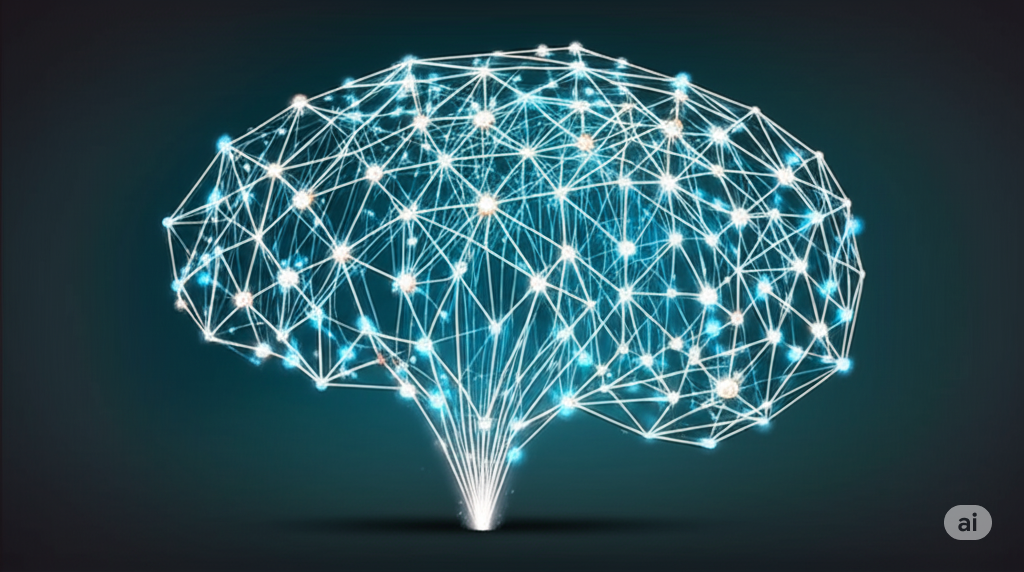Meta Description: Get ahead of the curve! Discover the most in-demand AI skills employers will be seeking in 2025. Learn what to focus on to land your dream job in the booming field of artificial intelligence.
Table of Contents
- The Soaring Demand for AI Talent](https://www.google.com/search?q=%23the-soaring-demand-for-ai-talent)
- Why These Skills Will Dominate in 2025](https://www.google.com/search?q=%23why-these-skills-will-dominate-in-2025)
- The Must-Have Technical AI Skills](https://www.google.com/search?q=%23the-must-have-technical-ai-skills)
- Essential Non-Technical Skills for AI Professionals](https://www.google.com/search?q=%23essential-non-technical-skills-for-ai-professionals)
- How to Acquire These Top AI Skills](https://www.google.com/search?q=%23how-to-acquire-these-top-ai-skills)
- The Future of the AI Job Market](https://www.google.com/search?q=%23the-future-of-the-ai-job-market)
- FAQ Section](https://www.google.com/search?q=%23faq-section)
- Conclusion](https://www.google.com/search?q=%23conclusion)
The Soaring Demand for AI Talent
Artificial intelligence is no longer a futuristic fantasy; it’s a transformative force reshaping industries across the globe. From healthcare and finance to manufacturing and entertainment, AI is driving innovation and creating unprecedented opportunities. This rapid adoption has ignited a massive demand for skilled professionals who can develop, implement, and manage AI-powered solutions. As we look towards 2025, this demand is only set to intensify, making it a prime time to invest in AI-related skills.
According to a recent report by LinkedIn, AI and Machine Learning roles have seen significant growth in recent years, and this trend is expected to continue. Companies are actively seeking individuals who possess a blend of technical expertise and strategic thinking to leverage the full potential of AI.
Why These Skills Will Dominate in 2025
The skills highlighted in this article are not just buzzwords; they represent the core competencies needed to navigate the evolving AI landscape in 2025. Several factors contribute to their increasing importance:
- Advancements in AI Technologies: The field of AI is constantly evolving, with new models, algorithms, and frameworks emerging regularly. Employers need professionals who can stay abreast of these advancements and apply them effectively.
- Growing Complexity of AI Applications: As AI moves beyond simple automation to tackle more complex problems, the required skillset becomes more sophisticated.
- Focus on Responsible AI: With increasing awareness of the ethical implications of AI, skills related to fairness, transparency, and accountability are becoming crucial.
- Integration of AI Across Industries: AI is no longer confined to the tech sector. Its integration into diverse industries necessitates professionals with domain-specific knowledge combined with AI expertise.
The Must-Have Technical AI Skills
To thrive in the AI job market of 2025, a strong foundation in the following technical areas will be essential:
- Machine Learning (ML) and Deep Learning: This remains the bedrock of many AI applications. Proficiency in various ML algorithms (e.g., regression, classification, clustering) and deep learning architectures (e.g., CNNs, RNNs, Transformers) is highly sought after.
- Natural Language Processing (NLP): With the increasing importance of chatbots, virtual assistants, and text analysis, NLP skills are in high demand. This includes understanding language models, sentiment analysis, and text generation techniques.
- Computer Vision: AI’s ability to “see” and interpret images and videos is transforming industries like autonomous vehicles, healthcare imaging, and security. Skills in image recognition, object detection, and video analysis will be crucial.
- Data Engineering and Big Data Technologies: AI models are data-hungry. Professionals who can build and manage robust data pipelines using tools like Apache Spark, Hadoop, and cloud-based data services (e.g., AWS S3, Google BigQuery, Azure Blob Storage) will be indispensable.
- Programming Proficiency (Python, R, etc.): Strong programming skills, particularly in Python (the dominant language in AI), are fundamental for implementing AI algorithms, manipulating data, and building AI applications. Knowledge of other languages like R can also be beneficial.
- Cloud Computing Platforms (AWS, Azure, GCP): Deploying and scaling AI solutions often happens on cloud platforms. Familiarity with services offered by major providers like AWS, Azure, and GCP is increasingly important.
- Model Deployment and MLOps: The ability to take a trained AI model and deploy it into a real-world application is a critical skill. MLOps (Machine Learning Operations) focuses on streamlining this process, including model monitoring, versioning, and continuous integration/continuous delivery (CI/CD) for ML.
Essential Non-Technical Skills for AI Professionals
Technical skills alone are not enough. Employers are also looking for professionals with the following crucial non-technical attributes:
- Problem-Solving and Analytical Thinking: AI professionals need to be able to identify business problems that AI can solve and break them down into manageable components. Strong analytical skills are essential for interpreting data and evaluating model performance.
- Communication and Collaboration: The ability to clearly explain complex AI concepts to both technical and non-technical audiences is vital. AI projects often involve multidisciplinary teams, so strong collaboration skills are crucial.
- Critical Thinking and Ethical Awareness: As AI becomes more integrated into society, the ethical implications become increasingly important. Professionals who can critically evaluate the potential biases and societal impacts of AI are highly valued.
- Domain Expertise: A deep understanding of the industry in which AI is being applied (e.g., healthcare, finance) provides valuable context and helps in developing more effective and relevant AI solutions.
- Creativity and Innovation: Pushing the boundaries of what AI can achieve requires creative thinking and a willingness to explore novel approaches.
- Continuous Learning: The field of AI is constantly evolving, so a commitment to lifelong learning and staying updated with the latest advancements is essential for long-term career success.
How to Acquire These Top AI Skills
Fortunately, there are numerous pathways to acquire the AI skills in demand for 2025:
- Online Courses and Specializations: Platforms like Coursera, edX, Udacity, and fast.ai offer comprehensive courses and specializations in various AI domains.
- University Degrees and Postgraduate Programs: A formal education in computer science, data science, or a related field provides a strong theoretical foundation.
- Bootcamps: Intensive AI and data science bootcamps offer a fast-tracked way to gain practical skills.
- Personal Projects and Portfolio Building: Working on real-world AI projects and showcasing them in a portfolio is crucial for demonstrating your abilities to potential employers.
- Contributing to Open-Source Projects: Engaging with the open-source AI community is a great way to learn, collaborate, and build a reputation.
- Networking and Attending Industry Events: Connecting with other AI professionals and staying informed about industry trends is invaluable.
The Future of the AI Job Market
The AI job market in 2025 and beyond looks incredibly promising. As AI continues to permeate more aspects of our lives and work, the demand for skilled professionals will only grow. By focusing on developing a strong combination of the technical and non-technical skills outlined above, individuals can position themselves for successful and rewarding careers in this transformative field. The key is to be proactive in your learning, adaptable to new technologies, and aware of the ethical responsibilities that come with shaping the future of AI.
FAQ Section
Q1: Which programming language is most important for AI in 2025? A: Python is currently the dominant language for AI development and is expected to remain crucial in 2025 due to its extensive libraries and strong community support.
Q2: Do I need a PhD to work in AI? A: Not necessarily. While advanced degrees can be beneficial for research-oriented roles, many practical AI positions value hands-on skills and a strong portfolio.
Q3: What are some entry-level AI job roles to aim for? A: Entry-level roles include Data Analyst, Junior Machine Learning Engineer, AI/ML Operations Engineer, and Research Assistant.
Q4: How important are ethical considerations in AI? A: Extremely important. Employers are increasingly seeking professionals who understand and can address the ethical implications of AI, such as bias, fairness, and privacy.
Q5: What are some key areas within AI that are expected to grow significantly by 2025? A: Areas like Generative AI, Explainable AI (XAI), Edge AI, and AI for sustainability are expected to see significant growth.
Q6: How can I stay updated with the rapidly evolving field of AI? A: Follow influential researchers and companies on social media, read industry blogs and research papers, attend conferences and webinars, and continuously engage in learning through online courses or personal projects.
Q7: What is MLOps, and why is it important? A: MLOps (Machine Learning Operations) is a set of practices that aims to streamline the process of taking machine learning models from development to deployment and maintenance in production. It’s crucial for scaling AI solutions effectively and reliably.
Q8: Are non-technical backgrounds relevant to AI? A: Yes, particularly when combined with domain expertise. Professionals with backgrounds in fields like healthcare, finance, or marketing who acquire AI literacy can play crucial roles in bridging the gap between AI technology and real-world applications.
Conclusion
The demand for AI skills is surging, and 2025 promises to be a pivotal year for professionals in this field. By focusing on developing a strong foundation in technical areas like machine learning, NLP, and data engineering, while also cultivating essential non-technical skills such as problem-solving and ethical awareness, individuals can position themselves for success in the dynamic and rewarding world of artificial intelligence. Continuous learning and adaptability will be the keys to unlocking the vast opportunities that lie ahead.
SEO & Technical Suggestions
- Primary Keyword: AI Skills 2025
- Secondary Keywords: AI jobs 2025, top AI skills, in-demand AI skills, machine learning jobs, NLP skills, computer vision jobs, data science careers, future of AI jobs, AI career path.
- Schema Markup Suggestions: Use
ArticleorBlogPostingschema. Consider usingItemListschema for the list of skills. UseFAQPageschema for the FAQ section. - Internal Link Suggestions: Link to other articles on AI trends, career development in tech, or specific AI technologies.
- External Link Suggestions: Link to reputable job boards (e.g., LinkedIn, Indeed), industry reports on AI job growth, and educational platforms offering AI courses.
- Featured Image Suggestion: A dynamic image showcasing a network of interconnected glowing nodes forming a brain-like structure, with lines of code and icons representing different AI skills (e.g., data, algorithms, cloud). The overall feel should be forward-looking and indicative of a connected, intelligent future workforce.





